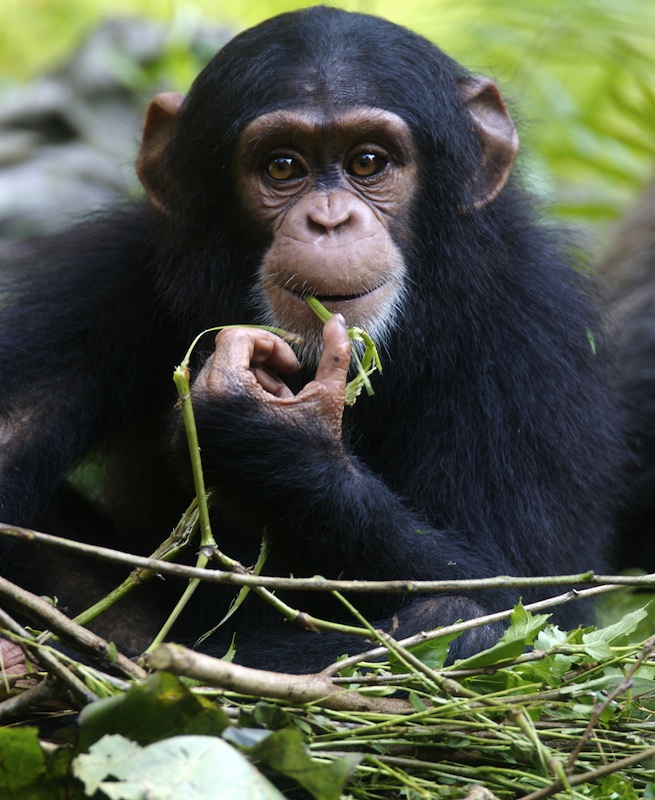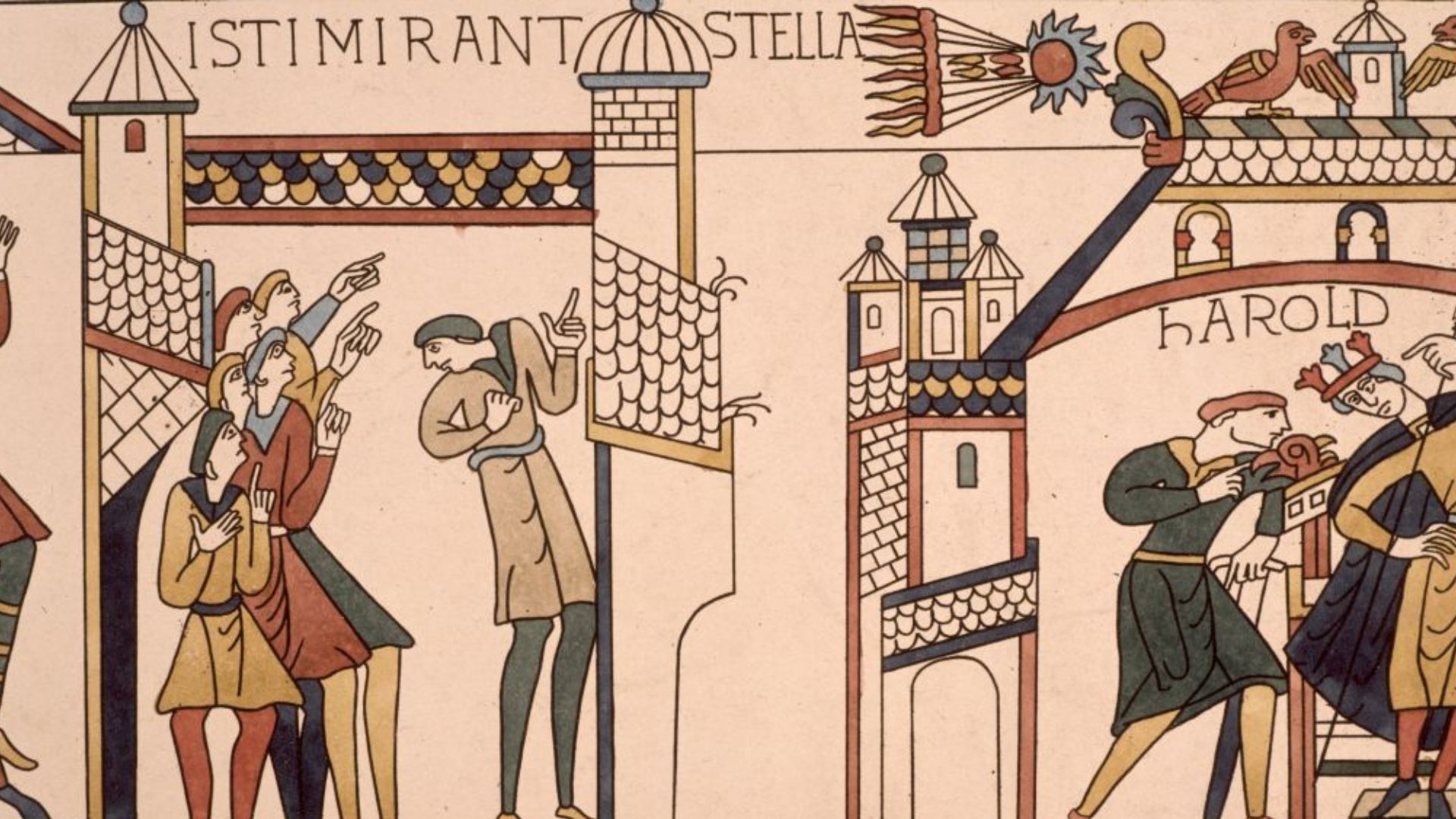Chimps Trade Tools To Help Out Pals

Chimps who work together know what their partners need to achieve a goal, and they're happy to lend a helping hand, recent research finds.
The study demonstrates that humans' close primate relatives are true team players, perhaps revealing the evolutionary roots of human cooperation, said study leader Alicia Melis, a behavioral scientist at Warwick Business School in the United Kingdom.
"This study provides the first evidence that one of our closest primate relatives, the chimpanzees, not only intentionally coordinate actions with each other, but that they even understand the necessity to help a partner performing her role," Melis said in a statement.
Chimp cooperation
Researchers knew that chimps work together, but Melis and her colleagues wanted to explore the level of collaboration going on during these bouts of teamwork. Many animals work together, for example to defend territory or hunt, but their actions are often independent even as they work toward the same goal, Melis said.
Twelve chimpanzees at the Sweetwaters Chimpanzee Sanctuary in Kenya participated in the experiment. Chimps at this sanctuary are rescued orphans from the pet and bush-meat trades.
Trading tools
Get the world’s most fascinating discoveries delivered straight to your inbox.
The researchers paired off the chimpanzees and positioned each pair at a sealed plastic box, next to a rake and a thick stick. The chimpanzee at the back of the box had to push grapes from the box onto a platform using the rake. The chimpanzee at the front had to use the stick to push up the platform and tip the grapes onto the ground, where both chimpanzees could eat them. [Creative Creatures: Animals That Use Tools]
The experiments started with one chimp getting both tools. Ten out of the 12 chimpanzees figured out that they had to give one of the tools to their partner to successfully get the grapes. In 73 percent of attempts, the chimp chose the right tool to hand over to get the job done. (For ethical reasons, the chimps could always quit the experiment at any time.)
"There were great individual differences regarding how quickly they started transferring tools to their partner," Melis said. "However, after transferring a tool once, they subsequently transferred tools in 97 percent of trials and successfully worked together to get the grapes in 86 percent of trials."
Chimps also learn tool use by watching others, according to research released in January in the journal PLOS ONE.
The new results, first published online Feb. 20, will appear in the April print issue of the journal Biology Letters. The study reveals that chimps are savvy strategizers, Melis said, adding that the chimps understand when they need a partner for a task and which tools that partner needs.
Follow Stephanie Pappas on Twitter and Google+. Follow us @livescience, Facebook & Google+. Original article on LiveScience.com.

Stephanie Pappas is a contributing writer for Live Science, covering topics ranging from geoscience to archaeology to the human brain and behavior. She was previously a senior writer for Live Science but is now a freelancer based in Denver, Colorado, and regularly contributes to Scientific American and The Monitor, the monthly magazine of the American Psychological Association. Stephanie received a bachelor's degree in psychology from the University of South Carolina and a graduate certificate in science communication from the University of California, Santa Cruz.
 Live Science Plus
Live Science Plus





